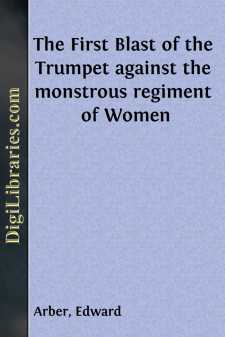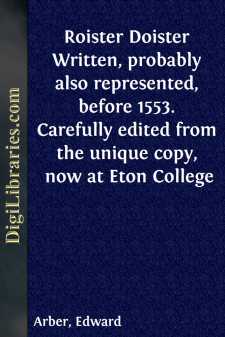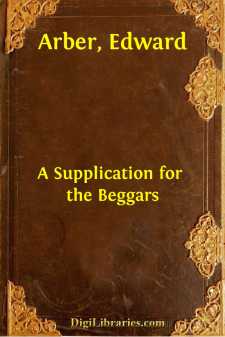Categories
- Antiques & Collectibles 13
- Architecture 36
- Art 48
- Bibles 22
- Biography & Autobiography 813
- Body, Mind & Spirit 142
- Business & Economics 28
- Children's Books 17
- Children's Fiction 14
- Computers 4
- Cooking 94
- Crafts & Hobbies 4
- Drama 346
- Education 46
- Family & Relationships 57
- Fiction 11829
- Games 19
- Gardening 17
- Health & Fitness 34
- History 1377
- House & Home 1
- Humor 147
- Juvenile Fiction 1873
- Juvenile Nonfiction 202
- Language Arts & Disciplines 88
- Law 16
- Literary Collections 686
- Literary Criticism 179
- Mathematics 13
- Medical 41
- Music 40
- Nature 179
- Non-Classifiable 1768
- Performing Arts 7
- Periodicals 1453
- Philosophy 64
- Photography 2
- Poetry 896
- Political Science 203
- Psychology 42
- Reference 154
- Religion 513
- Science 126
- Self-Help 84
- Social Science 81
- Sports & Recreation 34
- Study Aids 3
- Technology & Engineering 59
- Transportation 23
- Travel 463
- True Crime 29
Edward Arber
Edward Arber (1836–1912) was an English academic, writer, and editor, known for his pioneering work in the field of English literary history. He is most famous for his editing of important early English texts, including "The English Scholar's Library" and "The English Reprints" series, which made rare works accessible to wider audiences. Arber was also a professor of English literature at the University of Birmingham and made significant contributions to bibliographical studies. His dedication to preserving and republishing early texts helped cement his reputation as a key figure in Victorian-era literary scholarship.
Author's Books:
Sort by:
by:
Edward Arber
At the time this tract was written the destinies, immediate and prospective, of the Protestant faith seemed to lay wholly in the laps of five women, viz:-- CATHERINE DE MEDICI, Queen of France. MARIE DE LORRAINE, Queen Regent of Scotland, whose sole heir was her daughter MARY, afterwards Queen of Scots. MARY TUDOR, Queen of England, having for her heir apparent the Princess ELIZABETH. Of these, the...
more...
by:
Edward Arber
INTRODUCTION. HE author and early date of the present Comedy are ascertained by a quotation in Sir Thomas Wilson’s Rule of Reason of Roister Doister’s letter to Dame Custance. The first edition of the Rule of Reason, 1550-1, is a very scarce work; of which I have been unable to see a copy. The second edition, 1552, 8vo, ‘newely corrected by Thomas Wilson,’ has not the quotation: which...
more...
by:
Edward Arber
INTRODUCTION. ir Thomas More, who at that time was but Chancellor of the Duchy of Lancaster, was made Lord Chancellor in the room of Cardinal Wolsey on Sunday, the 24th of October 1529. The following undated work—the second of his controversial ones—was therefore written, printed and published prior to that day, and while as yet he held the lower dignity of the ducal Chancellorship. The...
more...




